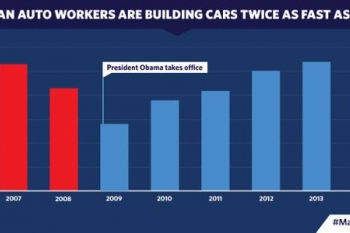A small New York City startup is hoping it has the next big solution in energy storage. A video documents what the company's breakthrough means for the future of grid-scale energy storage. Learn more.
Batteries have changed a lot in the past century, but there is still work to do. Improving this type of energy storage technology will have dramatic impacts on the way Americans travel and the ability to incorporate renewable energy into the nation’s electric grid.
On the transportation side, the Energy Department is working to reduce the costs and weight of electric vehicle batteries while increasing their energy storage and lifespan. The Department is also supports research, development and deployment of battery technologies that would allow the electric grid to store excess energy to meet future demand.
Featured
Batteries are essential for electric drive technologies such as hybrid electric vehicles (HEVs), plug-in hybrid electric vehicles (PHEVs), and all-electric vehicles (EVs).
The Vehicle Technologies Office focuses on reducing the cost, volume, and weight of batteries for plug-in electric vehicles (also known as electric cars), while simultaneously improving the vehicle batteries' performance (power, energy, and durability) and ability to tolerate abuse conditions.
Highlighting our list of the most interesting facts about electric vehicles.
Plug-in electric vehicles (also known as electric cars or EVs) are as safe and easy to maintain as conventional vehicles. EVs must undergo the same rigorous safety testing and meet the same safety standards required for conventional vehicles sold in the United States as well as EV-specific standards. In general, all-electric vehicles require less maintenance than conventional vehicles because there are usually fewer fluids (like oil and transmission fluid) to change and far fewer moving parts.








